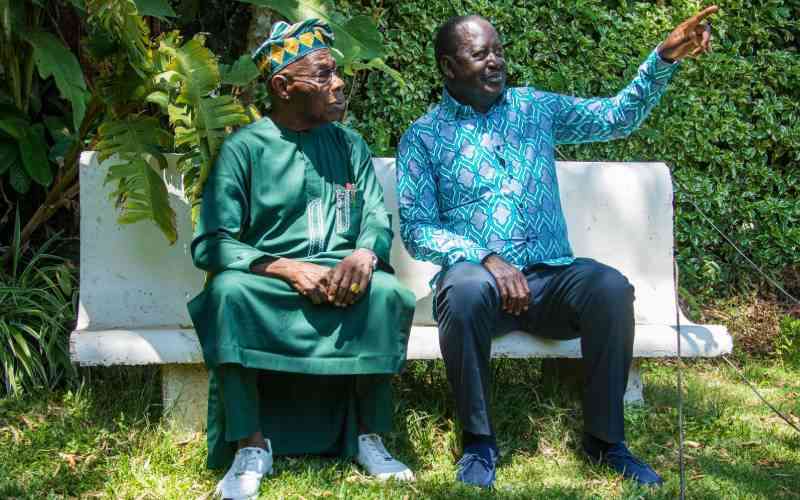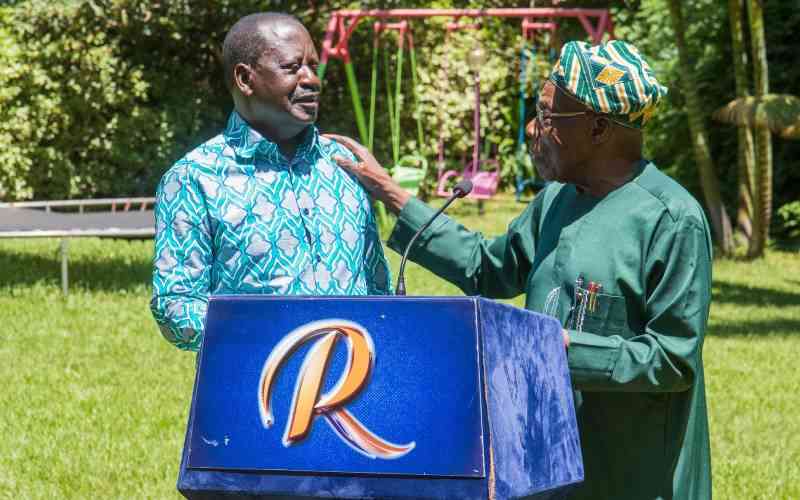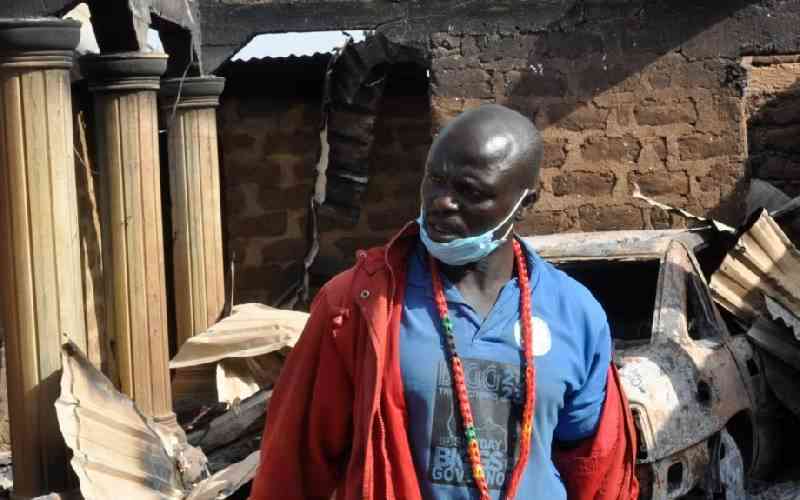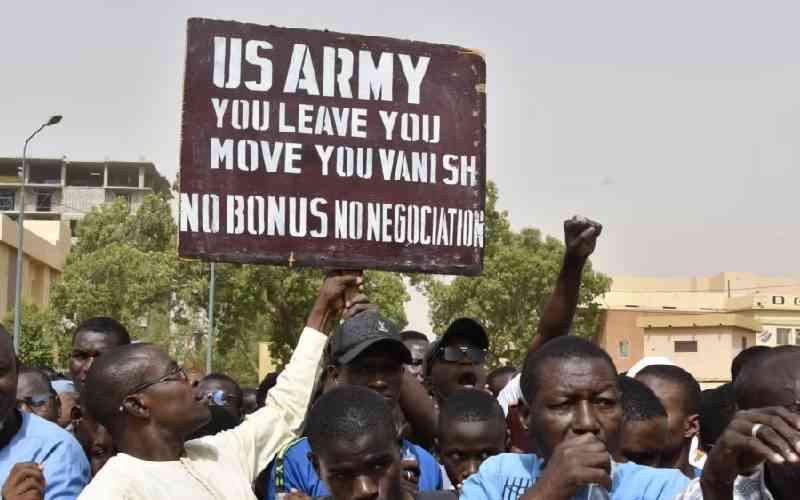Nigeria's main opposition party on Wednesday began choosing its candidate to run for president next year against incumbent Goodluck Jonathan, who is seeking a second term.
Thousands of delegates from the All Progressives Congress (APC) converged on the country's biggest city and financial hub, Lagos, to vote on which candidate would go forward to challenge Jonathan.
The front runners are Nigeria's ex-military ruler Muhammadu Buhari and Atiku Abubakar, a former vice-president.
Jonathan is expected to be formally endorsed as the PDP candidate at a meeting in Abuja, with no other challengers.
Past presidential primaries have run deep into the night before a winner is announced and a result may not come until Thursday.
In the run-up to the vote, it was former president Olusegun Obasanjo who grabbed headlines with an outspoken attack against Jonathan that sounded more like opposition criticism.
- OBJ v GEJ -
In his new, three-volume autobiography, "On My Watch", the PDP founder questioned Jonathan's fitness to govern and said he was surrounded by corrupt cronies and "greedy hangers-on".
Jonathan, he said, was "a man of adequate intelligence to run the affairs of Nigeria but lacking in broad vision, knowledge, confidence, understanding, concentration, capacity, sense of security, courage, moral and ethical principles, character and passion to move the nation forward on a fast trajectory".
Obasanjo, who was military ruler from 1976 to 1979 and the first president when Nigeria returned to civilian rule 15 years ago, also hit out at Abubakar, his vice-president from 1999 to 2007.
But despite questioning Buhari's economic competence, the former general "will be a strong, almost inflexible, and a courageous and firm leader", he said in extracts published in the This Day daily.
Political commentator Chris Ngwodo said the criticisms were a calculated move by "OBJ", who backed Jonathan when he took over as president after the death of Umaru Musa Yar'Adua in 2010.
"Jonathan hasn't had a stellar record of performance by any means. This (the publication of the book) is not borne out of deep concern about his record or performance," Ngwodo told AFP.
"It's simply that he hoped... he would be in a position to call the shots behind the scenes and that hasn't turned out to be the case.
"A lot of this is really him getting back at Jonathan. I would think as well that there's a real intent to see to it that Jonathan doesn’t get a second term."
Stay informed. Subscribe to our newsletter
- PDP confident -
Nigeria's presidential elections, to be held on February 14 next year, are expected to be the closest since 1999, with the APC looking to take power for the first time.
The APC -- a four-party coalition buoyed by a wave of defections -- has attacked Jonathan's record on security, his handling of the economy and corruption.
Jonathan has been seen as weak and criticised for not being able to end five years of violence by Boko Haram.
The opposition also claims that graft has got worse and the economy -- Africa's largest -- is reeling unnecessarily from a fall in global oil prices.
Political analysts believe Buhari, as a former military general, will be better placed to tackle the Islamist insurgency, while Abubakar has the better pedigree as a politician.
But Buhari could be hamstrung by his lack of policies as well as alleged rights abuses under his military regime in the 1980s and Abubakar because of corruption allegations in his past.
The PDP maintained that Jonathan was the best candidate and would secure an "emphatic" win even if Buhari and Abubakar ran as joint candidates.
"We are today serving notice to the opposition APC to expect a crushing defeat at the polls," the party's national publicity secretary Olisa Metuh told reporters on Monday.
 The Standard Group Plc is a
multi-media organization with investments in media platforms spanning newspaper
print operations, television, radio broadcasting, digital and online services. The
Standard Group is recognized as a leading multi-media house in Kenya with a key
influence in matters of national and international interest.
The Standard Group Plc is a
multi-media organization with investments in media platforms spanning newspaper
print operations, television, radio broadcasting, digital and online services. The
Standard Group is recognized as a leading multi-media house in Kenya with a key
influence in matters of national and international interest.
 The Standard Group Plc is a
multi-media organization with investments in media platforms spanning newspaper
print operations, television, radio broadcasting, digital and online services. The
Standard Group is recognized as a leading multi-media house in Kenya with a key
influence in matters of national and international interest.
The Standard Group Plc is a
multi-media organization with investments in media platforms spanning newspaper
print operations, television, radio broadcasting, digital and online services. The
Standard Group is recognized as a leading multi-media house in Kenya with a key
influence in matters of national and international interest.









